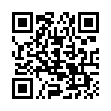Mac OS X Services in Snow Leopard
Mac OS X Services let one application supply its powers to another; for example, a Grab service helps TextEdit paste a screenshot into a document. Most users either don't know that Services exist, because they're in an obscure hierarchical menu (ApplicationName > Services), or they mostly don't use them because there are so many of them.
Snow Leopard makes it easier for the uninitiated to utilize this feature; only services appropriate to the current context appear. And in addition to the hierarchical menu, services are discoverable as custom contextual menu items - Control-click in a TextEdit document to access the Grab service, for instance.
In addition, the revamped Keyboard preference pane lets you manage services for the first time ever. You can enable and disable them, and even change their keyboard shortcuts.
Submitted by
Doug McLean
Recent TidBITS Talk Discussions
- Alternatives to MobileMe for syncing calendars between iPad/Mac (1 message)
- Free anti-virus for the Mac (20 messages)
- iTunes 10 syncing iPod Touch 4.1 (2 messages)
- Thoughts about Ping (16 messages)
Published in TidBITS 1004.
Subscribe to our weekly email edition.
- Submit Ideas for the 2009 TidBITS Gift Guide
- Free Wi-Fi Abounds with Holiday Sponsorships
- New Ebooks about the iPhone and iPod touch
- HD Radio Comes to iPhone via Adapter
- DealBITS Discount: Save 30% on Labels & Addresses
- Fix 10.6.2's Broken Slide Show Screen Saver
- Catch a Google Wave with Waveboard
- A Finder-Copying Bug in Snow Leopard
- Put More Pixels on Your Desktop with ViBook+
- TidBITS Watchlist: Notable Software Updates for 16 November 2009
- ExtraBITS for 16 November 2009
- Hot Topics in TidBITS Talk for 16 November 2009
WikiReader Puts Wikipedia in Your Pocket
I haven't been able to lay my hands on one of Openmoko's cute WikiReader devices yet, but given my 10-year-old son Tristan's proclivity for reading Wikipedia over nearly everything else there is to do on the Internet, I may be checking one out in person for a Christmas present.
The concept is simple - embed all of Wikipedia in an inexpensive handheld device. Designed by Thomas Meyerhoffer, a former Apple designer, the WikiReader measures 3.9 inches (9.9 cm) square and 0.8 inches (20 mm) thick, and weighs in at 4.5 ounces (127 g). That's about the size of a squared-off iPod touch, and although it's twice as thick, it's half as heavy.
For viewing, the WikiReader features a scratch-resistant glass touchscreen. It's grayscale, but I haven't yet been able to determine the resolution or how many shades of gray it can display. As far as I can tell, there's no backlight, so it won't work in the dark.
Most of what you'll do - scrolling, entering search terms, clicking links - happens on the touchscreen, but there are three physical buttons that do exactly what you'd expect: Search, History, and, for a little serendipitous browsing, Random. WikiReader reportedly uses only open software and Openmoko will be posting their source code shortly.
Power comes from a pair of standard AAA batteries, which can run the WikiReader for - get this - about a year of normal usage. It's such a joy to hear about a device that doesn't need constant recharging.
Of course, the reason for the miserly power usage is that the WikiReader has no connectivity at all. Instead, all three million articles of the English-language Wikipedia are stored on a microSD card - presumably 8 GB in size. Users with microSD card readers will be able to download updates for free, but since the updates are over 4 GB in size right now (and will only be growing), Openmoko also offers a $29-per-year update service that mails you a new microSD card every six months.
The downside of this update mechanism is twofold. Wikipedia evolves constantly, correcting mistakes and adding new articles, whereas the WikiReader can show only a snapshot in time. Also, Wikipedia provides numerous links out to original sources on the Internet; you won't be able to follow those.
But of course, eliminating the need for connectivity enables extreme battery life, ensures that the WikiReader works anywhere, and eliminates much of the concern some parents have with letting children browse the Web unattended. Apparently, WikiReader includes additional parental controls as well, since there are certainly bits of Wikipedia that some parents might not want their kids to read.
There's no question that an iPhone or iPod touch with a Wikipedia app will provide a more up-to-date and colorful experience than a WikiReader, but Openmoko may have hit a sweet spot with the WikiReader's price, size, and lack of flexibility that will make it perfect for kids of a certain age.
Although the WikiReader is available only in English at the moment, if it proves sufficiently popular, Openmoko could come up with versions that include other languages. Or, perhaps an international version could embed an even more capacious microSD card that could hold all Wikipedia articles regardless of language.
The WikiReader is available for $99 directly from Openmoko.
 The Data Rescue Center is dedicated to bringing you the very best
The Data Rescue Center is dedicated to bringing you the very besthard drive recovery, data migration, and photo archiving options,
all at affordable and fair prices for individuals and businesses.
Get a FREE estimate today at <http://www.thedatarescuecenter.com/>
And it's not like you're buying a set of paper encyclopedias that will never see an update. The updates are just a little less frequent, which is likely to affect largely the news-related entries that won't be of interest to kids anyway.
Just you wait until Ellie starts lecturing you about the specs on modern warplanes at dinner...
Seriously, I wouldn't be surprised if these proved popular in some schools, particularly if they can get the cost down with manufacturing scale.


